






Publisher
Oregon Society of CPAs
Mailing address
10206 SW Laurel St., Beaverton, OR 97005-3209
503-641-7200 | 800-255-1470 | Fax: 503-626-2942 www.orcpa.org | information@orcpa.org
Chair
John Hawkins
Chair-Elect
Gary Holcomb
Vice Chair
Adam Abplanalp
Past Chair
Tracy Allen
Board of Directors
Tricia Duncan
Jonathan Grover
Cameron Irtifa
Megan Kurz
Michael Lortz
Tiffany Nash
Harriet Strothers
RL Widmer III
Yvonne Zbranak
President/CEO
Sherri McPherson, IOM, CAE
Editor
Susan Fleming sfleming@orcpa.org
Chapter Council Chairs
Benton-Linn
Ross Holliday
Central Oregon
Yvonne Zbranak
Eastern Oregon
Jody Deardorff
Emerald Empire
Sarah Coffman
Mid-Columbia
Angelo Sampson
South Coast
Larry Reiber
Southern Oregon
Matthew Bowers
Content and Editorial Assistance
Up10 Solutions
The Oregon Society of CPAs assumes no responsibility for statements or advertisements herein and reserves the right to reject any advertising. Statements and opinions expressed are those of authors and not necessarily those of OSCPA. Publication of an advertisement does not constitute an endorsement of the product or service by Accounting Connect or OSCPA.
Update your contact information at www.orcpa.org/my-cpa/profile
Copyright© OSCPA 2025
Magazine design by Joleen Funk joleen.funk@gmail.com
Stock images by istockphoto.com & stock.adobe.com
Connect with OSCPA


Embracing a human-first culture: The key to the future of accounting 12
A day in the life with Haley Lyons 16
The digital transformation of accounting: Enhanced reporting with advanced tools 18
Chair’s Message 5
Member News 7
OSCPA News 20
Professional Development 24
Accounting Practice Sales 2
Private Practice Transitions 6
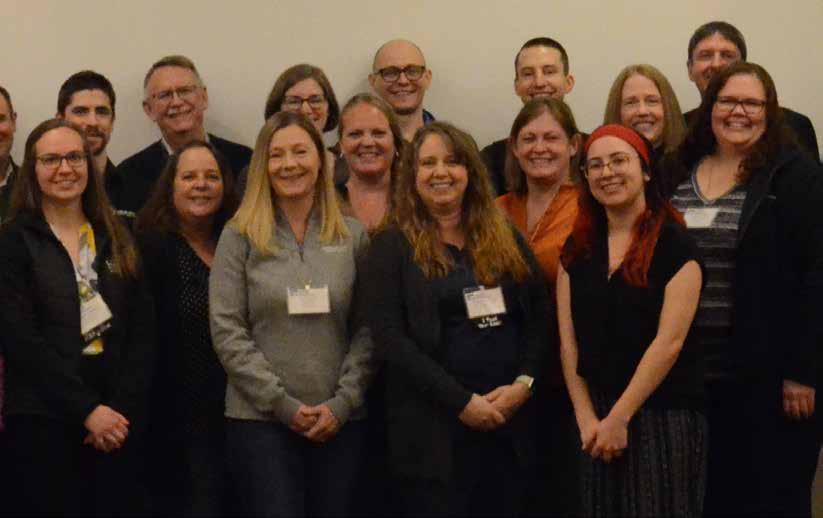


So that you can...
L e a r n
D i s c o u n t s o n t h e c u r a t e d , h i g h
q u a l i t y C P E y o u n e e d t o t h r i v e .
G r o w C o n n e c t Here for you in 2025 and beyond.

K n o w l e d g e , n e t w o r k i n g , a n d
e x p e r i e n c e s t o h e l p y o u g e t t o
t h e n e x t l e v e l .
T o s u c c e e d y o u n e e d a s t r o n g
c i r c l e a n d r e a l c o n n e c t i o n s .
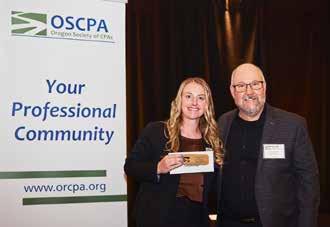
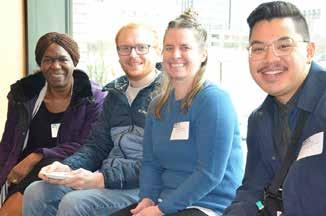
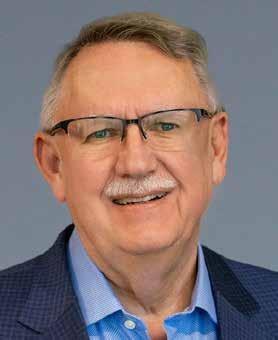
As we step into 2025, I’m reflecting on the year’s personal and professional accomplishments while planning future goals.
Many people set personal resolutions as the new year begins. Continuing my weight loss journey is one of mine – probably a common resolution. As lifelong learning is a core value to me, I also aim to improve my relationship and leadership skills. Earlier this year a speaker at the OSCPA Strategic Leadership Forum led the group in writing a personal mission statement. I’ve written mission statements for businesses and several non-profits, however a personal mission statement was new to me and exciting. In the new year, I will keep reviewing and polishing mine.
On the professional front, many of us are in the process of setting goals and budgets for the future. OSCPA has updated its strategic plan for 2025 to 2028. OSCPA board members and staff had a deep and thoughtful discussion led by a professional facilitator, identifying five key initiatives:
1. CPA Pipeline: Develop a framework to reach students at all levels to promote the CPA career path.
2. Membership: Promote OSCPA member value and stimulate engagement to retain and grow membership.
3. Continuing Professional Education: Provide and expand high-quality and relevant continuing professional education.
4. Advocacy: Advocate for the profession through strong relationships with external stakeholders and keeping members informed.
5. Organizational Capacity: Sustainably align the OSCPA’s resources to support the society’s strategic initiatives.
The OSCPA Professional Issues Update in December also reviewed 2024 accomplishments while highlighting changes to come in 2025. Economist Steve Scranton addressed economic uncertainty, while legislative counsel Nicole Hazelbaker addressed political uncertainty. Martin Pittioni, executive director of the Oregon Board of Accountancy, discussed legislative proposals for the 2025 legislative session, which have been built collaboratively through OSCPA, BOA, and OAIA efforts. Among the proposals is a bill with three alternative paths to CPA licensure:
• Retaining the current 150 semester hours of education plus one year of experience
• Adding a master’s degree plus one year of experience
• Adding a bachelor’s degree plus two years of experience
The additional cost and time for a fifth year of college has been perceived as a significant barrier to CPA licensure and the talent pipeline. It is one of many issues being addressed this session. Lastly, the OSCPA Professional Issues Update covered other current topics of interest including AI.
I recently listened to an AICPA podcast about the 2024 Future of Finance Summit. The theme was “Riding the
Waves of Transformation.” It struck me as an important theme. There are many external trends impacting the CPA profession: the demand for new skills, GenAI, maintaining culture in hybrid environments, accelerated digital transformation, innovation, and growth. I strongly believe that we must lean into technology to gain efficiencies and allow for growth.
The world of being a CPA is undergoing rapid change, and those we work with depend on us to stay informed. For example, during the holidays, the due date of the Beneficial Ownership Information filings changed three times in one week. We know that significant changes in tax law will happen with the Tax Cuts and Jobs Act set to expire at the end of 2025. Major tax legislation may be passed in 2025; time will tell how significant. Communicating changes and impacts will be important and we will continue to be nimble.
I am proud of the people who make up our profession. The mindset of our teams and their ability to be resilient is
My year as chair is coming to an end. It has been an honor to serve as the OSCPA chair and participate with the AICPA Council. In addition, my CPA career is coming to an end in a couple of years, and I am planning for the transition of clients. I intend to spend more time teaching and mentoring young staff, something I love to do. I will continue to be involved with the OSCPA and AICPA. I am only one of many baby boomers stepping aside as the next generation of leaders takes our place. I am excited to see the changes they bring to the future of the CPA profession.
John


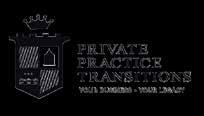
The 2024 OSCPA Leadership Academy (LEAP™) brought together rising stars, as identified by Oregon firms and organizations, to develop the leadership and networking skills needed to help further their CPA careers. Thank you to participating businesses for supporting the professional growth of your staff.
Thank you also to speakers Joseph Rugger, Tooth & Coin, Little Rock, AR and Donna Salter, Catalyst Leadership LLC, Vancouver, WA, and to program emcee Alayna Marten, Casey Peterson, LTD, Rapid City, SD.
Congratulations to our graduates! OSCPA wishes you all the best on your professional journeys.

Doug Alberty Irvine & Company LLC
Aimee Beltz
Willamette Valley Company
Sean Borne Delap LLP
Liliya Dobrei
Geffen Mesher & Company PC
Jilone Donner
Merina + Co
Henry Fillmore
Aldrich CPAs + Advisors LLP
Sayoko Inazuka
Geffen Mesher & Company PC
Justin Keegan
Aldrich CPAs + Advisors LLP
Alayna Marten
Casey Peterson, LTD
Tenzin Naljor
Dougall Conradie LLC
Grady Plank Dougall Conradie LLC
Amy Scott
Talbot Korvola & Warwick LLP
Yelena Tipikina Isler Northwest LLC
Kim Waara Dougall Conradie LLC
Thomas Zynda
Aldrich CPAs + Advisors LLP
Stay tuned for details on how to register and participate in the 2025 OSCPA Leadership Academy!
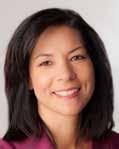




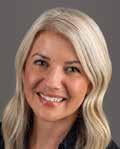
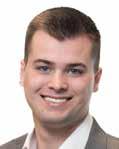
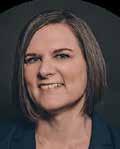




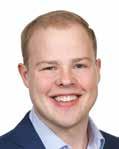
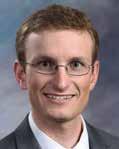
A-Dec Inc. and Central City Concern received Health Innovation Awards from the Portland Business Journal.
Aldrich CPAs + Advisors LLP was ranked #1 on Portland Business Journal’s list of Best Places to Work for large businesses.
Aldrich CPAs + Advisors LLP acquired HMA CPA, an accounting firm based in Spokane, WA.
Sonjia Barker and Tiffany Mellow were promoted to Shareholders at Perkins & Co.
Clark Nuber PS, Eide Bailly LLP, and Jones & Roth PC were named Best CPA Firms for Leadership Equity by the Accounting and Financial Women’s Alliance and the 2024 Accounting MOVE Project.
Delap LLP is celebrating several promotions and new hires. Joshua Caddel and Jim Feliz were promoted to Tax Senior Manager. Courtney Gengler and Aurora Cameron were promoted to Tax Manager. Lynette Soares was promoted to Assurance Manager. Gretchen Grau, Aiden Perry, Luke Scott, and Cheyenne Torgerson were promoted to Tax Senior. Ryan Kister was promoted to Assurance Senior. Gurleen Kaur was recently hired as Tax Salt Senior and Alise Olson as Assurance Staff.
Caleb Conner and Krysta Smith were recently hired at Kernutt Stokes LLP.
Ngan (Emily) Dinh started a new position as President of the Portland State University Accounting Club.
Breanne Eagles, Pam Elling, and Brad Smith spoke at Moss Adams LLP’s Effective Strategies for Personal and Business Planning event.
Devin Fortune was hired at Moss Adams LLP.
John Hawkins of REDW LLC presented on accounting careers at McNary High School in Salem.
Have an idea for a member to spotlight, or want to share promotions, achievements, or milestones? Contact communications@orcpa.org.
Hoffman Stewart and Schmidt PC was ranked #63 and Isler Northwest LLC was ranked #106 on Portland Business Journal’s list of Private 100 Fastest Growing Companies in Oregon and SW Washington.
Becca Hubinsky has joined Geffen Mesher & Company PC as Senior Tax Accountant.
Sarah Luginbill was recently hired at Deloitte LLP.
Haley Lyons of Kernutt Stokes has been named to the 2024-25 NASBA Board of Directors. See story on page 16
Joel Owens, accounting professor at Portland State University, won the Best Paper Award for the 2024 Northwest Accounting Research Group Conference held at Gonzaga University School of Business Administration.
Perkins & Co. was ranked #7 on Portland Business Journal’s list of Women-Owned Businesses in Oregon and SW Washington.
Pittman & Brooks PC was named to Accounting Today’s 2024 Best Small Firms to Work For.
Jagjot Singh was recently hired as a tax intern at KBF CPAs LLP.
Several firms and businesses were named to Portland Business Journal’s 2024 Most Admired Companies, including A-Dec Inc., Aldrich CPAs + Advisors LLP, Cambia Health Solutions, CareOregon, CFO Selections, Delap LLP, Deloitte LLP, Dunn Carney LLP, EY, Geffen Mesher & Company PC, Hoffman Stewart & Schmidt PC, Hoffman Construction Co., Intel, Kaiser Permanente Northwest, Legacy Health, Moss Adams LLP, Nike Inc., Perkins & Co, Ferguson Wellman Capital Management, Oregon Food Bank, OnPoint Community Credit Union, Schnitzer Properties, Tonkon Torp LLP, Vista Capital Partners, and Walsh Construction Co.
Josie Aaron
Katherine Abbott
Abbie Abel
Israr Absar
LeeAnn Aden
Ryan Akhavi
Erin Altman
Mohammad Amini
Meg Anderson
Chelsea Apodaca
Diego Arellano-Barocio
Roland Armstrong
Angela Bailor
Jessica Barnes
Kyra Barth
Justin Barwick
Alden Battaglia
Lauren Bean
Andrea Belz
Jacob Biber
Abigail Bies
Connor Bigelow
Thomas Blair
Ellie Bleichman
Mailli Bode
Sean Borne
Benjamin Bourne
Hitomi Bowles
Alexia Brenholtz
Stella Brown
Nolan Burke
Teresa Burnett-Dumanch
Julieann Carr
Angelina Caviness
Szu Yin Chen Keen
Ru-hwa Chen
Ian Chisholm
Mona Choo
Ginger Clark
Diana Cobian
Rizal Collado
Charyn Colvin
Rose Conley
Dionne Cook
Kellen Cranmer
Samantha Curran
Todd Currier
Mariamawit Demissie
Kellen Desbiens
Matthew Desmond
Aaron Diamond
Blaise Dinkelman
Trevor Dix
Jilone Donner
Robert Erick
Emily Escobar-Sosa
Hannah Essa
Derek Eubanks
Emily Fangue
Suzanne Fisher
Julia Fitzgerald
Amy Flanders
Devin Fortune
Ilean Franco
Hannah Friesen
Logan Gant
Christian Garcia Badillo
Alexis Garrett
Isabelle Gatien
Emily Gemetti
Grant Goesch
Jason Gray
Debbie Gregg
Matthew Greyerbiehl
Hannah Gwaltney
Carson Hager
Brandon Harris-Ankerich
Steven Harrop
David Harvey
Connie Harvison
Robert Hays Jr.
Danny Hernandez
Will Holboke
Hailey Holmes
Lara Homma
Rebekah Hopkins
Lingyun Hu
Haodong Huang
Su-Wei Huang
Dieu-Hanh Huynh
Uto Iha
Christopher Kamkar
Ruth Kang
Gurleen Kaur
Aedan Kerley
Crystal Khoroshenkikh
Alex Kinoshita
Christine Knowles
Kirsten Kuenzi
Wyatt Kuhl
Monica La Joie
Morgan LaCamp
Joslyn Lachenmeier
Brenden Lapierre
Kenzo Lee
Julie Leggs
Shuyi Lin
Sarah Logue
Sean Lopez
Matt Macer
Susan Martin
Kolbe McAfee
Kaleb McKinley
Elaine McMillan
Mariah McRae
Xiaoxi Mei
Hayden Meier
Logan Mentzer
Jordan Mesa
Scott Miller
Cody Moreland
Angel Moreno Islas
Thao Morgan
Sean Murphy
Stella Nishimura
Kelly O’Hara
Morgan Olofson
Margaret Omulindi
Pricila Orduno
Jared Pamintuan
Edgar Paz
Jaydra Perfetti
Evan Peterschmidt
Jason Pineda
Camille Pinheiro
Slater Plant
Ariel Pointer
Jay Porter
Beth Rader
Cassandra Ramey
Andrea Ramirez
Laila Ramirez
Brenna Reese
Anya Remsburg
Reuben Rentas
Kira Rice
Wesley Rieger
Gabriel Rincon Sr
William Robinson
Yahaira Rodriguez
Victoria Rogers
Jillian Rosen
Melissa Rupert
Anthony Sabia
Rylan Sattler
Dean Schiller
Jeffrey Schofield
Lucas Schorno
Madelyn Scott
Zachary Shapira
Jagjot Singh
Ashley Sinn
Ian Sissel
Rhys Socolich
Jacklyn Spada
Matthew St Martin
Joseph Stammeyer
Paul Stewart
Congratulations new CPAs. We are proud and excited to welcome you to the profession.
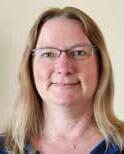
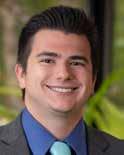
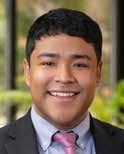
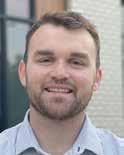

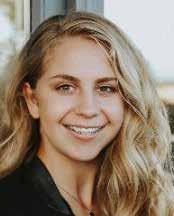
Angela Bailor, Geffen Mesher & Company PC
Alden Battaglia, Moss Adams LLP
Jasper Bernstein, KDP Certified Public Accountants LLP
Lumiko Blubaugh, Irvine & Company LLC
Chelsea Dore, Irvine & Company LLC
Derek Eubanks, Pittman & Brooks PC
Victoria Harms, Mike Glavey CPA LLC
Danny Hernandez, Pittman & Brooks PC
Hailey Holmes, Moss Adams LLP
Bethany Kalebaugh, Hoffman Stewart & Schmidt PC
New members continued
Jason Stoddard Ware
Nathan Suazo
Kayla Surta
Daniel Temmesfeld
Puthyda Thach
Neha Thapa
Thomas Thenell
Ivan Tontchev
Nathaniel Treat
Katleen Truong
Austin Ueeck
Daniel Van Schoiack
Valentina Virguez
Grace Walker
Megan Wallace
Nan Wang
Ruth Kang, Moss Adams LLP
Casey Leyes, Perkins & Co.
Mariah McRae, Moss Adams LLP
Veronica Miller, Geffen Mesher & Company PC
Thao Morgan, Perkins & Co.
Yuliya Rybina, Hoffman Stewart & Schmidt PC
Abigail Smith, Geffen Mesher & Company PC
Szu-Ying Tseng, Gary McGee & Co. LLP
Nash Wood, Irvine & Company LLC
Odo Weaver
Melissa Weber
Catherine Weesner
Joseph Wegner
Andrew Wheeler
Jessica Williams
Lauren Williams
Jennie Wilson
Daniel Yim
Andrew Young
Eliarosa Zepeda
Jack Zhang
Jackson Zhen
Bei Zheng
Roan Zigenis

by Carla McCall, CPA-MA, CGMA
The accounting profession is at a crossroads, facing a pivotal moment in which it must redefine its value and sustainability to remain relevant in an ever-evolving business landscape. One of my key platforms as AICPA chair is focused on this very issue, emphasizing the need to rethink how the profession is perceived and how it operates.
For far too long, the general perception of accounting has been rooted in outdated stereotypes – many high school and college students still think we spend our days crunching numbers. Professors, too, might not always maintain an external view, often missing out on the transformative impact of technology and the real value accountants bring to businesses. This perception gap must be bridged, and it starts with changing how we talk about the profession. By
showcasing the dynamic, technology-driven and strategic role that modern accountants play, we can attract a new generation of talent.
The AICPA National Pipeline Advisory Group was established to study and address the issue of the talent pipeline in accounting, which has seen a worrying drop-off. Attracting new talent is only half the battle, the real challenge lies in retention. Today’s workforce has different expectations, and if we don’t evolve our business models and the way we work, we risk losing the talent we so desperately need.
This isn’t solely a matter for the AICPA. It’s a call to action for all leaders of CPA firms and finance functions!
One “radical” idea gaining traction is the elimination of the billable hour – a shift from input-based to output-based performance measurement. This approach not only aligns with the modern workforce’s expectations but also supports a more sustainable and fulfilling work environment. It’s about delivering value efficiently, not just logging hours. When staff are incentivized and celebrated for putting new efficiencies into play – whether through AI, firm-wide platforms, or innovative approaches – everyone benefits. The culture is one of growth and discovery, and innovation reduces hours on mundane tasks to make room for more valuable initiatives. Additionally, embracing flexible work arrangements like “work from anywhere” policies and integrating executive coaches into the workplace can significantly enhance employee satisfaction and productivity.
For young CPAs entering the profession, it’s important to understand that the world of accounting is evolving rapidly. The traditional path of working long hours for a paycheck is being replaced by a focus on meaningful, impactful work. Here’s what young CPAs and accountants should keep in mind as they start their careers:
• Embrace technology: Technology is transforming accounting from a numbers-focused task to a strategic, advisory role. All accountants (both young and experienced) should be prepared to leverage new tools and software to provide insights and solutions for their clients and companies.
• Focus on value, not hours: The shift away from the billable hour model means that what matters most is the value you bring to your clients and companies, not how many hours you work. Think about how you can contribute to your organization’s success and your client’s success in meaningful ways.
• Seek out human-first employers: Look for companies that prioritize a human-first culture. These are the firms that will support your career growth, work-life balance, and personal well-being. A company that values people over profit is more likely to offer a fulfilling and sustainable career path.
• Be open to learning and adaptation: The accounting profession is changing, and continuous learning is key. Be open to new ideas, approaches, and technologies. Adaptability will be a significant asset throughout your career.
• Prioritize work-life balance: Understand that your health and well-being are as important as your career. Find a company that recognizes this balance and supports you in maintaining it.
Why should companies prioritize a human-first culture? The answer is simple: the world of work has changed. The COVID-19 pandemic forced people to reevaluate their lives and priorities, bringing to light the importance of worklife balance. Across all generations, there’s been a shift towards valuing personal time and well-being. The younger generations, in particular, have made it clear that their philosophy is “work to live, not live to work.”
Family and health should always come first, yet discussing our lives outside of work was once considered taboo. This way of thinking is outdated, and people are no longer willing to accept it. The opportunity to work differently is here, and we should thank those who are pushing for change. With the technological advancements at our disposal, we can work smarter, not harder, making more money in less time. This should be the goal of every company.
At companies that embrace a human-first culture, staff feel more connected and loyal. They know they are supported, not stifled, which allows them to be more engaged and effective in their work. The goal should be to create an environment where everyone feels comfortable bringing their whole selves to work. This not only includes worklife integration but also a strong focus on inclusion and belonging.
Creating a human-first culture starts with leadership. The tone from the top is crucial. Partners and executives must be aligned, understanding that this approach is not just good for employees – it’s good for business. If leadership fails to walk the talk, credibility is lost.
It’s essential to clearly define what a human-first culture means for your organization. Write it down, get partner alignment, and build it into your vision or strategic plan. Accountability is key, so put monitoring mechanisms in place – conduct surveys, hold stay interviews, and actively solicit feedback. Culture is not about a single initiative, it’s about a series of consistent actions over time. Building credibility that your values are real and lived is essential.
In today’s rapidly changing work environment, it’s essential to adapt and be flexible. That’s why we advocate for not mandating time in the office. We recognized that requiring staff to be in the office just for the sake of presence is not conducive to a healthy work environment. Instead, we focus on encouraging in-person time for training, mentorship, and intentional collaboration – activities that benefit face-to-face interaction, as well as foster a sense of community and shared purpose.
Our approach to a human-first culture doesn’t mean eliminating the office but rather using it as a tool for meaningful engagement. By offering flexibility, we empower our staff to work in ways that best suit their individual needs and lifestyles. This approach ensures that when our team members do come together, it’s for a purpose that adds value to their professional development and strengthens our collective goals. And guess what? This broadens your talent pool, allowing you to hire from anywhere!
Successfully implementing this type of culture requires adjustments in training and performance management, along with accountability from all employees.
At the heart of a human-first culture are the values that guide daily interactions and long-term strategies. Some core values that support AAFCPAs’ culture include:
• Gratitude: A culture of gratitude grounds the company. It’s about appreciating each other’s contributions and recognizing the positives in every situation.
• One firm/company: Collaboration is key. By fostering a one-firm/company culture, we can seamlessly work together to help clients solve problems and improve their businesses.
• Authenticity over perfection: Embracing authenticity allows people to be themselves, which in turn leads to more inspired and effective leadership. There are many ways to achieve success, authenticity allows for a diversity of thought and approach.
• Self-care: Prioritizing self-care ensures that we can bring our best selves to work. If we don’t take care of ourselves, we can’t take care of others.

We asked three OSCPA Foundation scholarship recipients how they will define a successful CPA career
Alondra Ruiz Contreras, University of Portland, Perkins & Co Scholarship
“I will define success as a CPA by the positive impact I can make on people’s lives. While my love for math drew me to accounting, the numbers I work with represent real people and their financial health. My goal is to handle those numbers with care, helping to improve lives.”
Ryan Kirkland, Corban University, Fluence PC Scholarship
“Success is more than just money and authority in the workplace. I think success involves using what we do to help and serve others.”
Kelsey Rundorff, Portland State University, William F. Holdner Memorial Scholarship
“Success means leveraging both my expertise and the collective wisdom of the CPA community to deliver results and build lasting relationships.”
• Kindness: In a high-stress, deadline-driven profession, it’s important to remember to be kind. Mistakes happen, but learning and growing from them is what matters. Granting grace and asking, “What did you learn?” can transform setbacks into opportunities.
• Fun: Building fun into everything we do helps maintain a positive and engaging work environment. From department outings to company-wide meetings, creating opportunities for fun strengthens team bonds.
• Community impact: Giving back is a cornerstone of a human-first culture. Whether through donating time, talent, or treasure, making a positive impact on our communities enriches our own lives and aligns with our values.
The accounting profession must embrace these changes to remain sustainable and valuable. By prioritizing a human-first culture, focusing on value over billable hours, and embracing new ways of working, we can attract and retain the talent
we need to thrive. It’s time to acknowledge the evolving expectations of the workforce and seize the opportunity to create a better, more fulfilling work environment for all.
Ultimately, companies that prioritize people over profit will not only enjoy greater employee satisfaction but will also see enhanced performance, client satisfaction, and longterm success. The future of accounting is human-first, and it’s a future we should all be excited to embrace. Young accountants entering the field today have the opportunity to shape and be part of this exciting transformation, making their careers more impactful and rewarding than ever before.
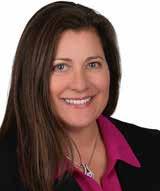
Carla McCall, CPA-MA, CGMA, is managing Partner at AAFCPAs, chair of the AICPA, former MassCPAs board chair and a 2013 Women to Watch Award recipient. Contact her at cmccall@aafcpa.com.
Reprinted with permission from the Massachusetts Society of CPAs.

Where:
Best Western Plus Agate Inn, Newport, Oregon
When:
Annual Meeting: May 7 (½ day, morning) –Complimentary for OSCPA Members, includes breakfast
Strategic Leadership Forum: May 6–7 (1 ½ days, includes Annual Meeting)
OSCPA Annual Meeting: Connect with fellow members, gain insights, and celebrate the profession.
Strategic Leadership Forum: Enhance your leadership skills with focused sessions designed for volunteer leaders and members passionate about professional growth.
Registration Fee for Leadership Forum: $99 per person
Watch for registration details soon!
Questions? Contact 503-641-7200 / 800-255-1470, ext. 3, or email profdev@orcpa.org.
Take your leadership journey to the next level!
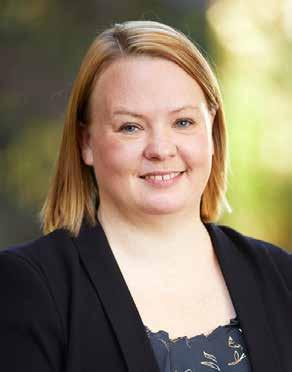
Connect with Haley on LinkedIn to follow her journey and learn more about her exciting path ahead: linkedin.com/in/haley-lyons-24090337/.
Haley Lyons was recently elected Pacific regional director for the 2024-25 National Association of State Boards of Accountancy (NASBA). She was also appointed as chair of NASBA’s Communications Committee and as a member of the Relations with Member Boards Committee. Lyons is a partner at Kernutt Stokes LLP and has been with the firm since 2007. She is very active in her profession and community through her service on the Oregon Board of Accountancy, as president of the board for the Alvord Taylor Foundation, and as a school advisory committee member for Saint Paul Catholic School.
We asked Lyons to take time from her busy schedule to share what a typical workday for her looks like.
Morning routine
6:30 a.m.
The day begins with a chorus of “Alexa, cancel!” as my husband Greg and I try to silence our alarm clock. Our kids, almost 7 and 9, follow suit at 6:45 a.m., and the morning rush begins. It’s a whirlwind of gathering school bags, lunch boxes, and the occasional missing sweatshirt or coat before we hit the road for school drop-off at 7:45 a.m. Greg is taking them today so I head right to the office.
Commute to the office
7:52 a.m.
My commute to the office is just long enough for two songs. I arrive ready to tackle the day’s challenges…after I get some coffee.
Reviewing client’s cash project 8:00 a.m.
As the leader of the firm’s Virtual Accounting (VA) Department, I start the day by reviewing a client’s cash projection and year-end forecast. The client needs guidance on how much to award in annual bonuses. Today starts
this way but no two days are alike. The daily work depends on the flow of our clients’ businesses as we are their accounting departments. Sometimes there are wires that need to be approved or board packets to finesse. Today it was projections (one of my favorites).
Brainstorming with a client 10:00 a.m.
I meet with a client tracking all their parts inventory in an Excel spreadsheet. (No shade to Excel because this girl loves a good spreadsheet) but this client has truly outgrown the ability to effectively and efficiently manage the tracking process this way. Together, we brainstorm how to implement a cloud system to streamline the process and make their lives easier.
Meeting with the VA Director 11:00 a.m.
Time for my bi-weekly meeting with the Director of the VA department. He lives in Detroit so I ask my obnoxious set of questions about the time zone, the weather, and the success of the Detroit Lions. We move on to review staff

utilization for the last month to determine who has too much work and who has availability. We look ahead to new clients we are onboarding to figure out the right teams to service those clients. The meeting ends with both of us glad that we have interviews later in the day. The team is busy!
Lunch and more caffeine
12:00 p.m.
Lunch time! I grab a bite and drink more coffee to keep my energy levels up.
1:00 p.m. The leadership team conducts interviews for a couple of open positions. The candidate pool is great, and we end the interviews feeling optimistic about the direction the team is heading.
Email triage time
3:00 p.m.
I spend the next hour triaging emails, sorting them into what needs immediate attention, what can wait, and what can be delegated.
Reviewing financial statements
5:00 p.m.
Realizing I never hit send on the email about bonuses (real talk here), I groan and send it out. Then, it’s time to review a monthly set of financial statements that landed on my desk ahead of a Board meeting in a couple of days. The Executive Summary needs a few edits but otherwise looks great for wrapping up and distributing to the client.
Interested in sharing your day as a CPA and shine light on the wonderful world of accounting? Reach out to communications@orcpa.org!
Wrapping up
6:00 p.m.
Time to head home. As I do every day, I hope my husband got there first and started dinner. Remembering he had a business meeting, I take the kids to McDonald’s for Happy Meals.
Catching up 8:00 p.m.
The kids are in bed. Generally this is the time I catch up on a show, listen to a podcast, or pretend to read a book while scrolling through social media.
The “Elf alarm” 9:30 p.m.
It’s December, so the “Elf alarm” goes off, and Greg and I play rock, paper, scissors to decide who will deal with Elf on the Shelf tonight. Elfie is successfully transitioned to a new spot.
Final reflections
10:00 p.m.
Bedtime. I reflect on my day, feeling incredibly grateful for the motivated, smart humans I work with and the opportunity to collaborate on shared goals. I love this profession and am proud to serve and to help my clients, giving back to a field that has given me a challenge and lifestyle that I love.
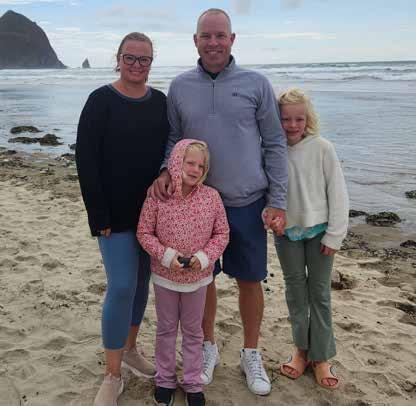
by Randy Johnston, K2 Enterprises

The digital transformation of accounting is happening now. Adopting modern technology is no longer optional for organizations and public accounting firms seeking to thrive in an increasingly data-driven world. Leveraging advanced tools to enhance business reporting capabilities provides a competitive edge, streamlining processes and delivering valuable insights. Firms and organizations can transform raw data into actionable intelligence by integrating innovations such as real-time analytics, predictive modeling, and customizable dashboards. This approach improves operational efficiency and strengthens decision-making, positioning firms as trusted advisors in a fast-evolving profession.
Visualizing data transforms complex information into accessible insights. Tools designed for creating charts, graphs, and dashboards make it easier to identify patterns and trends. This approach can help you present findings in a clear, concise manner that resonates with clients and organizations. Additionally, interactive visualizations allow
stakeholders to explore data independently, leading to more informed decision-making. Such visual tools also enhance transparency, making it easier to communicate key metrics effectively. By integrating these tools effectively, you can create a visually compelling narrative for both internal and client use.
Predictive analytics tools help forecast trends and anticipate challenges before they arise. These technologies analyze historical data to identify potential risks and opportunities. For accounting firms and businesses, predictive analytics can uncover cash flow patterns, reveal seasonal revenue fluctuations, or highlight areas requiring cost optimization. With these insights, you are better positioned to provide proactive recommendations that strengthen your clients’ strategic planning. This forward-looking approach allows your firm to deliver insights that drive proactive decision-making and client trust. We see this technology implemented in platforms like 4ImpactData and Zoho Analytics.
Automating data collection eliminates manual entry and reduces errors, ensuring accurate and efficient reporting. Software designed for this purpose gathers data from multiple sources seamlessly, creating a unified repository. This functionality frees up time for your team to focus on analysis and strategy. As a result, you deliver faster, more reliable insights while enhancing productivity. Additionally, automated processes can scale with your firm or organization’s growth, accommodating larger datasets and more complex tasks. We see this technology implemented in platforms like Dext and MakersHub.ai.
A document management system (DMS) enhances how records are stored and retrieved, reducing misplacement risks, and supporting compliance. These platforms facilitate secure file sharing and encourage effective collaboration within teams. Converting files between formats, such as transforming PDFs into spreadsheets, simplifies the adjustment and evaluation of structured information—check this out for making data more adaptable. After refining details, the file can be returned to its original format for efficient distribution. We see this technology implemented in platforms like SmartVault and Workiro.
Combining data from various systems into one reporting platform simplifies analysis and enhances accuracy. For example, integrating sales, finance, and inventory data provides a holistic view of a business’s performance. This unified approach eliminates silos, allowing for more comprehensive insights. By aligning disparate data streams, you are better equipped to deliver cohesive, actionable reports. Integrating systems also ensures consistency across reporting, reducing errors and improving data reliability.
Real-time analytics provide the immediate visibility necessary for agile decision-making. These tools continuously update data, giving you a current snapshot of key metrics. Real-time insights can help identify discrepancies, measure ongoing performance, or track compliance with financial goals. Integrating these tools into your process ensures that stakeholders receive the most up-to-date information, enabling faster responses to emerging trends. Real-time updates help identify trends as
they emerge, allowing your team to adapt strategies without delay.
Customizable dashboards empower departments to focus on their specific key metrics. Tailored views ensure that stakeholders see the most relevant data for their roles. This personalization minimizes information overload and fosters more effective communication. With the ability to create role-specific dashboards, your team delivers targeted insights that drive better outcomes. Dashboards can also include interactive features that enable users to drill down into specific datasets for deeper analysis.
Mobile-friendly reporting tools allow stakeholders to access data from anywhere. This flexibility is essential in today’s demanding environment, enabling timely reviews and decisions. Whether in the office or on the go, mobile accessibility ensures uninterrupted workflows. By implementing these tools, you provide convenience and efficiency for your team and clients alike. Ensuring compatibility with various devices enhances collaboration and empowers decision-makers to act quickly.
The integration of technology into business reporting processes offers organizations, businesses, and public accounting firms the opportunity to elevate their service offerings and improve clients’ operational performance. With tools that improve data accuracy, accessibility, and visualization, firms and organizations can address complex client needs while staying ahead of industry demands. Embracing these advancements ensures firms remain agile and capable of delivering the insights their clients rely on. As technology continues to evolve, forward-thinking firms and organizations will continue to lead the way, setting new benchmarks for excellence in the field. You can take advantage of the digital transformation of accounting now.
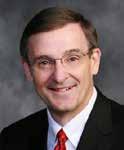
Randy Johnston is executive vice president of K2 Enterprises, which provides support and instruction to CPAs. Learn more at k2e.com.
The OSCPA extends appreciation to the following individuals and businesses who contributed to the OCPA/Legislative Action Committee.
Contributions below were made between January 1, 2024 and December 31, 2024.
$1,000
Geffen Mesher & Company PC
Rick Nissen
$100 - $250
Jerrold Aljets
David Blumhagen
Leo Bottaini
James Brinkman
Glen Buchanan
James Carnegie
William Cote
Anne Darrow
Alyce Dawes
Geoffrey Dougall
Mary Downs
Janice Essenberg
James Flad
Randell Guyer
Douglas Henne
Michele Henney
Vicki Holland
Ronald Hunsaker
Constance Huntsman
Isabel Johnson
TeriAnn Kruse
Kenneth Kuhns
Arthur Lovett
Michael Lynch
Stephen McConnel
Suzanne McGrath
Sherri McPherson
Tiffany Nash
Jay Rathe
RBH Group LLC
Rigos Professional Education Programs Ltd
Gratia Robertson
Mark Skoglund
Scott Wright
Robert Wynhausen
$50 - $99
Karen Anderson
Linda Barkus
Rosemarie Brammer
David Evans
Don Groth
Oren Hampton
Make an impact by reviewing legislative bills or joining OSCPA’s Key Person Program to strengthen CPA advocacy in Oregon—training provided! Learn more: orcpa.org/get-involved-advocacy
Cynthia Harelson
Michael Hunter
David Klinger
Melynda Kohl
Mark Landstrom
Minda Lourence
Michael Miller
Susan Nestor
Larry Olson
Sue Perkel
Linda Rasmussen
Kurt Sand
James Searcy
Thomas Strong
Laura Wallace
Kimberly Walton
Novena Weaver
Thomas Wicks
Up to $49
Wee Chin
Randall Mitchell
Kathleen Murphy
Charles Rosenblum
Allen Tanner
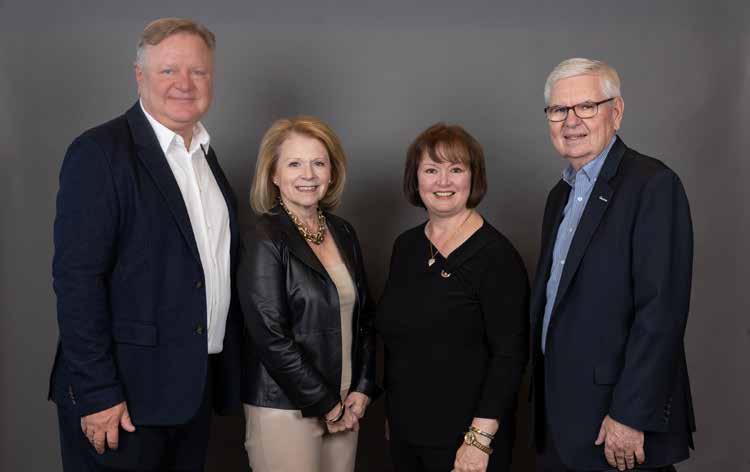
The success of the OSCPA Key Person Program depends on the personal relationships between CPAs and their elected representatives. These relationships are the most effective means of communicating the profession’s views to the Oregon Legislature and Oregon delegates in the U.S. Congress.
Your connections:
• Ensure the success and secure the future of the CPA profession
• Protect the integrity of the profession
• Position CPAs as a policy resource for legislators in Salem and Washington, D.C
• As a legislative contact, the OSCPA may reach out to you on an urgent or important issue, asking you to share information with state and congressional legislators whom you may know.
For more information or to sign up: Sherri L.D. McPherson, IOM, CAE, President/CEO 503-597-5480 / 800-255-1470, ext. 120; smcpherson@orcpa.org
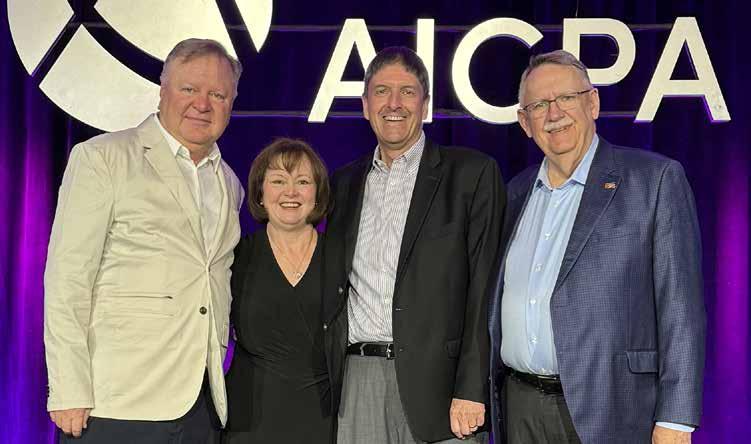
Developed by the Not-for-Profit Strategic Committee, OSCPA Knowledge Networks highlight important not-for-profit topics in one-hour informal discussions with experts and peers, all for CPE credit. Register for the bundle or individual courses.
Not-for-Profit Knowledge Network Bundle Option
Webcast (3 hours) Bundle - #W80692
• February 5, 2025 - April 2, 2025
CPE: 3 / Level: 4 (Update) / Webcast
Not-for-Profit Knowledge Network: Fundamental Grant Accounting (1 hour - morning)
• February 5, 2025 - In-person - #11213
• February 5, 2025 - Webcast - #W80687
CPE: 1 / Level: 4 (Update)
Not-for-Profit Knowledge Network: Policies & Procedures to Prevent Pitfalls (1 hour - morning)
• March 5, 2025 - In-person - #11214
• March 5, 2025 - Webcast - #W80688
CPE: 1 / Level: 4 (Update)
Not-for-Profit Knowledge Network: Benefits of Being a Board Member (1 hour - morning)
• April 2, 2025 - In-person - #11215
• April 2, 2025 - Webcast - #W80689
CPE: 1 / Level: 4 (Update)
To Register: Visit www.orcpa.org/cpe and enter the event number.
Your non-CPA professionals may be eligible for OSCPA membership, allowing them access to:
• Deeper knowledge of the CPA profession and the issues facing your firm.
• Professional communications such as the member magazine and newsletters.
• Free educational series such as InfoBites and other programming.
• Opportunities for knowledge and skills building through professional development courses.
• Leadership training through the annual OSCPA Leadership Academy (LEAP)™.
We welcome your valued staff as members of their professional community.
Contact membership@orcpa.org or 503-641-7200 / 800-255-1470, ext. 4 to check eligibility or visit www.orcpa.org/join


Not-for-Profit Conference
April 23, 2025
In-person & Webcast
Construction Industry Conference
May 2, 2025
In-person & Webcast

ERISA Conference
May 13, 2025
In-person & Webcast
Farming, Ranching & Agribusiness Conference
May 30, 2025
Webcast



Governmental Accounting & Auditing Conference
May 20-21, 2025
In-person & Webcast

Real Estate Conference
June 5, 2025
In-person & Webcast





Strategic Committees
• Business Management & Advisory Services
• Governmental Accounting & Auditing
• Leadership Development
• Legislative Policy
• Not-for-Profit
• OSCPA Women’s Initiatives
• Peer Review
• Professional Conduct (Ethics)
• Professional Development (CPE)
• Taxation
• Young Professionals
Chapter Councils
• Benton-Linn
• Central Oregon
• Eastern Oregon
• Emerald Empire
• Mid-Columbia
• South Coast
• Southern Oregon
Learn
www.orcpa.org/my-oscpa/get-involved
• Accounting & Auditing
• Construction Industry
• ERISA
• Estate Planning
• Farming, Ranching & Agribusiness
• Financial & Retirement Planning
• Forest Products
• IRS/Practitioners Forum
• Northwest Federal Tax Conference™
• Real Estate
• State & Local Taxation
*Active participation on a Project Committee earns you free registration to the conference.
• Speaking to schools and community organizations
• Serving on The OSCPA Educational Foundation Board
• Thought leader content for publications
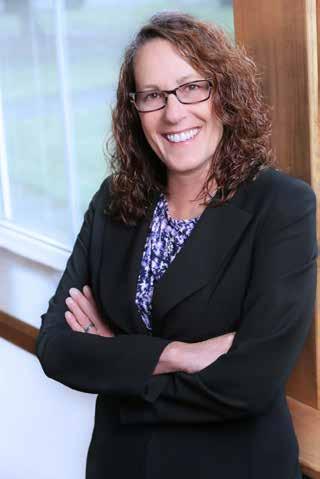
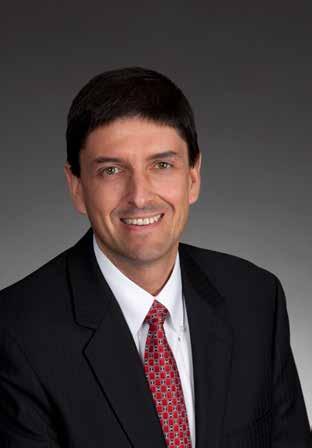


Welcome to a world where professional education is dynamic, collaborative, and empowering. We hand-pick the courses for OSCPA-Select™ CPE
If we don’t find what you need, we build it ourselves with local experts and standouts.
www.orcpa.org/cpe
ADDRESS SERVICE REQUESTED

Members of the OSCPA Community Service Committee spend a Saturday morning planting trees during a Friends of Trees volunteer project.